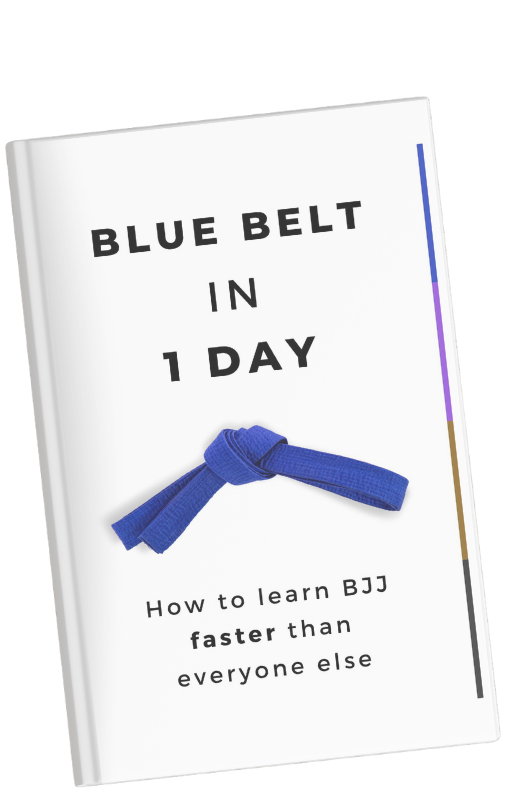Are you wondering how often you should train Brazilian Jiu-Jitsu (BJJ) to see the best results? In this article, we dive into the factors that influence the ideal training frequency and provide guidelines to help you create the perfect schedule for your goals and abilities. Whether you’re a beginner or a seasoned practitioner, this is a must-read to optimize your BJJ training and take your game to the next level.
Why more BJJ training isn’t always better
It’s easy to fall into the trap of thinking that more training is always better, but this is not the case when it comes to BJJ. While consistent training is important, overtaining is a big risk to your progress, for two reasons:
- Recovery: Recovery is an essential part of any training program, and it’s important to take it seriously. Your body needs time to repair and rebuild the muscle tissue that is broken down during training. If you don’t give it enough time to recover, you risk developing chronic fatigue and injury, which can impede your progress.
- Quality: Another important aspect to consider is the quality of your training. A single high-quality training session can be more beneficial than several low-quality sessions. It’s essential to focus on your technique and form during training, rather than just going through the motions. This will help you to improve your skills more efficiently, and avoid developing bad habits.
How often should you train BJJ as a beginner?
Your progress depends mostly on how often you train, but as I explained, more isn’t always better. Here’s how often you should train BJJ as a beginner and what results you can expect based on your training frequency:
- Once a week: Once a week is not enough training if you’re a beginner and you want to feel a sense of progression in your skills and fitness. (My controversial opinion: you’ll still get better, you just won’t feel like you do.)
- Twice a week: Twice a week is a better starting point for beginners, as it allows for more time to practice techniques and develop muscle memory. This also gives your body plenty of time to recover between training sessions, which is important as you are likely to experience soreness and fatigue as you adjust to the demands of BJJ.
- 3 times a week: For optimal progress as a beginner, training three times per week is ideal. This allows for a balance of time to practice new techniques and drill existing ones, as well as providing enough rest and recovery time for the body. Additionally, having a consistent training schedule of three times per week can help establish the discipline and routine needed to make progress in BJJ.
- 4 or 5 times a week: As your body adapts to the demands of BJJ and you become more experienced, you may find that you are able to train four or even five times per week. However, it’s important to remember that rest and recovery are just as important as training, so it’s important to listen to your body and not overdo it.
- 6 or 7 times a week: Some people may even train six or seven times per week, but this is not sustainable. I tried to train 7 times per week many times, but within 14 days I always have to take some rest because of fatigue or small injuries. I have trained 6 days per week for a few weeks in a row, but after two months I’ll have to take extra rest because of overtraining injuries.
Can you train jiu jitsu twice a day?
Yes you can train jiu jitsu twice a day, but it’s not sustainable for amateurs. I trained twice a day for multiple times a week for a while, but I developed many small injuries that still linger right now.
If I train BJJ twice a day I like to do a drilling session in the morning and a sparring session in the evening. That way I can keep it up better.
What happens when you train BJJ too much?
When you train BJJ too much, it can have a negative impact on your progress and overall performance. Here are a few ways in which overtraining can affect your BJJ progress:
- Increased risk of injury: Overtraining can lead to muscle strain, ligament sprains, and joint pain. When you push your body too hard and don’t allow enough time for recovery, you risk injury and could be out of training for an extended period of time.
- Decreased performance: Overtraining can lead to fatigue, burnout, and a decrease in performance. When you are constantly pushing your body to the limit, you may not be able to perform at your best, which can negatively impact your progress in BJJ.
- Plateau in progress: Overtraining can cause a plateau in progress, where you are not seeing the same rate of improvement as before. Training too much can lead to a lack of progress and can cause frustration and demotivation.
How do you know if you’re overtraining BJJ?
Overtraining in BJJ can be difficult to recognize, as it can happen gradually and the symptoms may be subtle. Here are a few signs that you may be overtraining:
- Persistent muscle soreness: If you are experiencing muscle soreness that lasts for an extended period of time, it could be a sign that you are overtraining.
- Fatigue and exhaustion: If you are feeling fatigued and exhausted even after rest and recovery, it could be a sign that you are overtraining.
- Loss of motivation: If you are losing your motivation to train and no longer find BJJ fun, it could be a sign that you are overtraining.
- Decreased performance: If you are noticing a decrease in your performance, such as a lack of strength or stamina, it could be a sign that you are overtraining.
- Persistent injuries: If you are experiencing persistent injuries, it could be a sign that you are overtraining and not allowing your body enough time to recover and repair.
- Insomnia, changes in appetite, and mood swings: These are common signs of overtraining and it’s important to pay attention to them
If you suspect that you may be overtraining, it’s important to take a break from training and allow your body to recover. It’s also recommended to consult with a coach or trainer to create a suitable training plan that allows for progress without risking injury.
How to improve faster without training more
In the end, everyone has a limited quantity of training. Even professional atheletes can only train so many hours per day.
But you can potentially have unlimited quality of training. You can always make sure that you’re working on more effective techniques, come in with a better plan for your training, focus more, etc.
And if you want help with that, you should check out my course Blue Belt in 1 Day. It’s the fastest blue belt accelerator program that I know off.

Blue Belt in 1 Day
